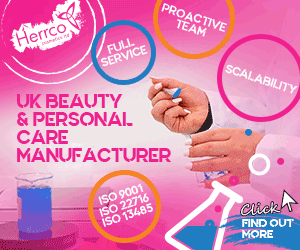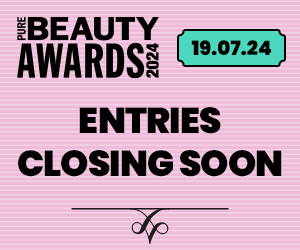In spite of Amazon’s success during the Covid-19 pandemic, which helped founder Jeff Bezos catapult his wealth to an eye watering US$202bn, according to Forbes, the e-commerce behemoth is missing the mark with beauty shoppers.
New findings by market research group Appinio found Brits are 15 times more likely to buy cosmetics and personal care products from a supermarket or beauty retailer rather than opting for Amazon’s convenience and speedy next-day delivery.
Some 68% of respondents said they prefer to buy personal care offline, preferring to touch and smell skus before they purchase.
Deodorants were the most popular personal care item to be purchased from supermarkets, at 53.2%, followed by shower and shaving products, hair and oral care products.
Meanwhile, cosmetics, face care and body lotions ranked the highest with high street names, such as Boots or Superdrug.
“We found this detailed look into the attitudes of Brits fascinating,” said Jacqueline Junke, Market Lead at Appinio.
“We’re coming out of a period of huge digital acceleration across industries yet this particular area we’re seeing offline winning for various reasons.
“It’s promising for both supermarkets and high street retailers examining what consumers want from their retail experience moving forward and how self-care brands can capitalise on effective marketing campaigns that offer a certain experience in-store and brand-building and awareness online.”
The beauty of bricks-and-mortar
Speaking to Cosmetics Business last year, Louise Evans, Amazon’s former Associate Vendor Manager, and now Head of Fashion and Cosmetics at British marketing agency Molzi, said that the beauty had been one of Amazon’s more popular categories and that lockdown undeniably accelerated the trend.
“Research shows the convenience of having products delivered quickly and cheaply, direct to consumers’ front doors, is hugely appealing,” she said.
“In a post-Covid-19 world where hygiene remains paramount, avoiding crowded high streets and touching products will likely be an ongoing issue Amazon can address for businesses and consumers alike.”
But crowds have not seemed to put off beauty shoppers.
NPD Group found in the first week that non-essential retail reopened in the UK, bricks-and-mortar stores took more than £23m in prestige beauty sales.
And for the week ending 17 April, just five days after restrictions were lifted in England, in-store shopping accounted for 70% of total sales in luxury beauty, with e-commerce taking just 30% of the sales that week.
And a continuing theme for beauty brands is a hybrid balance with many companies introducing digital and in-store integration models, or virtual ‘metaverses’.
‘In-store shopping is down but not out’

Analysis:
By Becky Bargh
Senior News and Social Media Reporter
Amazon emerged from the pandemic as the ultimate champion.
In June last year, it was reported almost seven million shoppers bought personal care items or cosmetics via the platform for the first time during lockdown, accelerating the site’s threat to the high street and independent retailers across the country.
And, seemingly, the platform was poised to take over from bricks-and-mortar for its competitive prices – but these results show a fall out of favour with shoppers, who still prefer the in-store experience, particularly for beauty.
No doubt, these figures will not irreparably hurt Amazon’s profit projections, but consumers’ desire to return to stores, following months of restrictions and locked down cities, shows that the high street is still a lucrative place to sell beauty, and that it is not going to go down without a fight.





